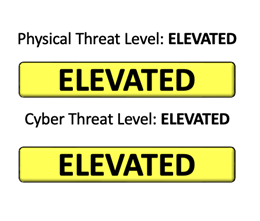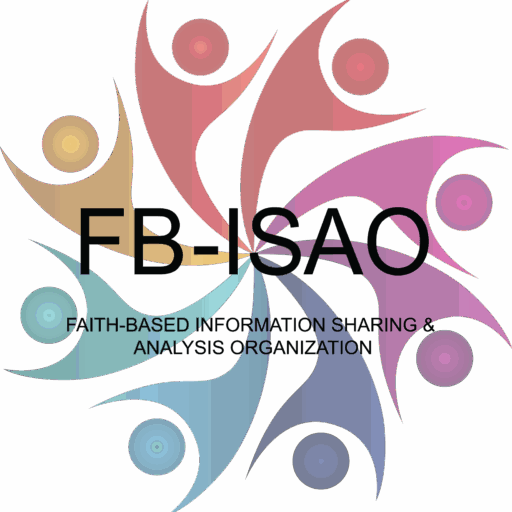Faith-Based Security Headlines
These updates are shared to help raise the situational awareness of Faith-Based organizations to best defend against and mitigate the impacts from all-hazards threats including physical security, cybersecurity, and natural disasters.
Israel, the West Bank and Gaza Travel Advisory
As of June 16th, the U.S. Department of State has issued a Level 4 “Do Not Travel” advisory for Israel, the West Bank, and Gaza due to armed conflict, terrorism, and civil unrest. In Israel, active hostilities and heightened military conflict pose significant risk. The situation remains volatile with the potential for rapid escalation. In the West Bank, terrorist activities and frequent civil unrest continue making travel highly dangerous. While in Gaza, the threat of terrorism, ongoing armed conflict, and restrictions on border crossings further risking the U.S. government personal and their families.
Israel has conducted extensive airstrikes targeting Iran’s nuclear and military infrastructure and in response Iran has launched over 100 drone and missile attacks. While these strikes have caused casualties, they have disrupted daily life and heightened tensions as well. President Trump has expressed support for Israel’s actions, emphasizing the need for a “real end” to Iran’s nuclear program.
The advisory strongly urges all U.S. citizens to avoid travel to these areas, remain highly alert, avoid crowds and demonstrations and be aware of the nearest bomb shelters. Travelers are encouraged to enroll in the Smart Traveler Enrollment Program (STEP), monitor local media, and have emergency evacuation insurance.
Related Articles:
- Insight: Iran leader Khamenei sees his inner circle hollowed out by Israel
- Israeli military says it killed Iran’s wartime chief of staff
- Israel strike cuts off Iran’s state TV during live broadcast as studio fills with dust
Analyst Comments: The escalation between Israel and Iran has pushed the region into a dangerous phase. This conflict now includes direct missile exchanges, cyberattacks, and proxy confrontations across Lebanon, Syria, Iraq, and Gaza. This now has issued a Level 4 “Do Not Travel” advisory for Israel, the West Bank, and Gaza is a significant escalation that directly impacts faith-based organizations. This warning reflects active armed conflict, unpredictable violence, and terrorism targeting both civilians and infrastructure, including tourist and religious sites.
If your place of worship has a missionary group at these “Do Not Travel” sites there are key considerations to consider:
- Targeted Threats & Symbolism
- Religious groups may hold a political or ideological symbol. This can increase the risk in volatile regions. Even if a group is not directly targeted, they may be caught in proximity to demonstrations, raids, or attacks near religious landmarks.
- Legal and Insurance Liability
- If a faith-based organization proceeds with travel, it may void travel insurance and. Leaders should confirm that evacuation coverage and crisis support are in place and that all travelers understand the risk.
- Operational Readiness
- Mission coordinators should ensure all participations are registered with the Smart Traveler Enrollment Program (STEP) and are equipped with alert systems. It is also important to designate emergency contacts and avoid movement without security vetting.
- Consider Alternate Approaches
- Places of worship should explore remote or alternate mission alternatives.
Trump officials reverse guidance exempting farms, hotels from immigration raids
A wave of renewed immigration enforcement under the Trump campaign’s 2025 agenda is drawing national scrutiny as ICE raids increase at farms, hotels, and factories. The Washington Post reports that raids are disrupting labor forces in sectors that rely heavily on undocumented workers, such as agriculture and hospitality, with many employers expressing concern over sudden labor shortages. At the same time, a Wired investigation reveals that some companies are now disclosing immigration-relating risks, including potential deportations and workforce instability, in their SEC filings, signaling how deeply enforcement policies are impacting business operations and investor outlooks. The Hill highlights the growing tensions in Texas, where farmers report economic losses and fear further ICE action, especially as worker shortages jeopardize harvests.
Analyst Comments: Recent immigration enforcement activity, including widespread ICE raids at farms, hotels, and factories, is having a significant impact on both the labor market and local communities. These operations have disrupted daily life for many families and caused workforce shortages in industries that rely on seasonal or undocumented labor. Faith-based organizations are increasingly playing a role by helping affected individuals as well as seeing ICE firsthand on places of worship. As federal immigration enforcement intensifies, the role of places of worship is focal point in debate over immigration and sanctuary. As ICE actions extend beyond worksites and into communities, places of worship must remain vigilant and legally informed. As we reported yesterday, new guidance from President Trump has directed an increase in immigration enforcement activity in Democratic-led cities across the U.S.
6 Months After Brian Thompson’s Murder, What’s Changed About Executive Protection?
Modern executive protection is built on proactive planning, situational awareness, and crisis prevention. In the wake of Untied Healthcare CEO Brain Thompson’s targeted killing on December 4th, 2024, corporate leaders across industries have accelerated efforts to reassess and strengthen executive security protocols. The incident underscored the growing challenge of balancing the visibility and public engagement expected of executives with the need to minimize security risks. Some companies responded by removing executives’ online profiles and limiting their public presence. Although feared waves of copycat attacks haven’t fully materialized, several serious incidents have occurred since, like the Minnesota shooting of two Democratic leaders. Due to this boards of directors, are increasingly prioritizing executive safety. ASIS Online explains how, orders of protection can be a crucial tool for safeguarding high-profile individuals, including corporate executives and faith-based leaders from harassment and threats
Analyst Comments: The targeted killing of UnitedHealthcare CEO Brian Thompson in late 2024 has heightened awareness across sectors about the vulnerabilities faced by high-profile leaders, including faith-based figures who often serve as public and community-facing representatives. As threats linked to political and social tensions rise, religious leaders face increased risks. Faith communities may also be targeted for their values and work with vulnerable groups. Faith-based institutions are encouraged to adopt stronger security measures and work with law enforcement to protect leaders and maintain community stability. Alongside, although orders of protection can be effective, they are not foolproof and require proactive legal actions and may not prevent all forms of harm. Organizations are advised to integrate legal measures with security plans, including physical protection, threat assessments, and monitoring to ensure the safety of their leaders.
Get the Daily Awareness Post Delivered to your Email!
More Faith-Based Stories
Minnesota shooting suspect Vance Luther Boelter is former pastor, Tim Walz appointee
First Hearing of the Religious Liberty Commission, part 1 & First Hearing of the Religious Liberty Commission, part 2
Aldo Hernandez Destroys Statues At LI Church: Police
Woman In Critical Condition After Sword Attack In Oklahoma City Monastery & Oklahoma City monastery attack, Norman triple shooting leave communities on edge
Man claiming to be Messiah smashes up Milwaukee synagogue causing $100,000 in damages -interview
Nigeria: Up to 200 Christians killed by extremists in overnight massacre: Catholic charity
Pentagon Signals US Won’t Strike Iran As Trump Summons National Security Council
Radware warns of surge in Iranian cyber activity targeting Israeli industrial, critical systems
After Two-Day Manhunt, Suspect Charged with Shooting Two Minnesota Lawmakers and Their Spouses
Minnesota Shooting Suspect Allegedly Used Data Broker Sites to Find Targets’ Addresses
US offering $10 million for info on Iranian hackers behind IOControl malware
Scattered Spider has moved from retail to insurance
How Fraudsters Are Poisoning Search Results to Promote Phishing Sites
Many health care organizations aren’t ready for GenAI
Rounds of severe storms to continue in central and eastern US
New COVID variant swiftly gains ground in US; concern looms for summer wave
Modernizing Campus Lockdowns In 2025
More Security-focused Content






